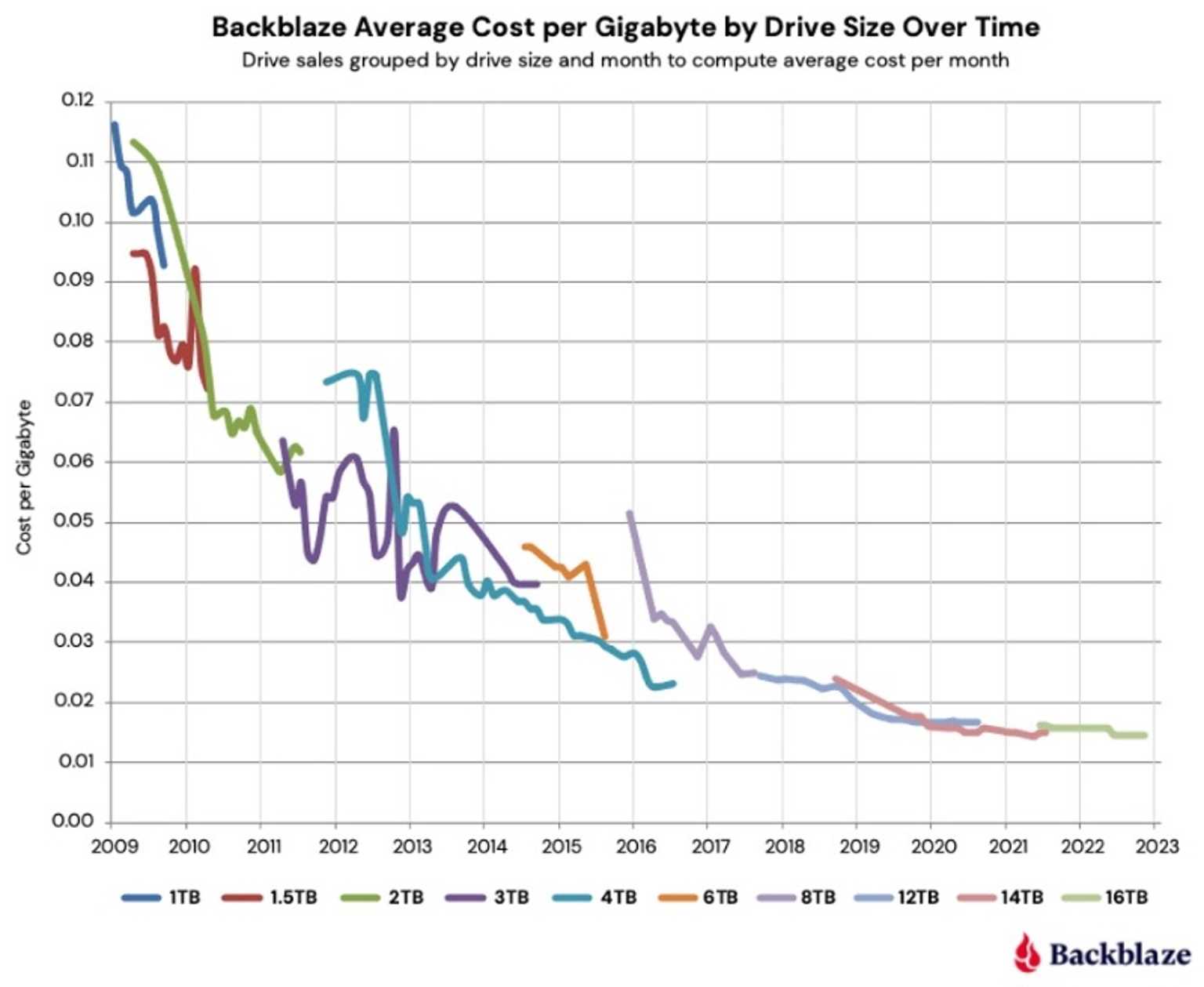One of the surprising facts I learns was that YouTube are now doing up to 2Mbps H.264 Video for 1080P content. And the quality is quite impressive for Internet Video. And the world doesn't seems to want to save bandwidth from Audio Codec, vast majority of it are using 256Kbps AAC / Opus rather than 128Kbps.
As bandwidth gets cheaper. At what point do we arrive demonising return of newer better codec? Let say providing a new codec on Youtube, would actually add 1 Exabyte of storage as they convert original video to new codec, while only using 30% of the H.264 Bandwidth. Because of the long tail of adoption curve, For the first 5 years less than 40% of user will use this codec. So their saving would be 28% of their bandwidth.
Does 28% saving of bandwidth / per year outweighs the cost of extra 1 Exabyte storage and increasing? The roadmap for both storage and networking is very clear. The cost of storage unit isn't dropping much, while we continue to see double bandwidth of Ethernet and Fibre Optics every 4 years. 400Gbps Ethernet now, 800Gbps Standardise, 1.6Tbps standard is coming in 2025 and on market by the end of the decade. It is not so clear if the price /GB of HardDrive will drop all that much. Even in the current market where SSD ( commodities ) are dropping fast, Hard Drive RSP hasn't moved a bit.
So if we were to optimise for Storage and not Bandwidth, may be the best idea if not to introduce a completely new codec, but to build on top of H.264? LCEVC [1] MPEG-5 is basically an enhancement layer on top of existing codec that brings better quality. You get the best of both world.

A lot of people likes to use the above graph and article to show how hard drive continue to fall. If you Zoom out over long enough period of course if will look fine. But if we look from 2013, where HDD price was slightly bumped up due to Thailand flooding, we saw price /GB went from $0.04 to $0.015 in 10 years time. Now if we Look at 2016, we reach roughly $0.025 to $0.015 in 7 years. We reached $0.02 in 2019.
Or another way to look at it, it took us 3 years to half the cost per GB from 09 to 11. Took another 4 years to half the price from 11 to 15. Took 5 years to half again to 2020.
So from 2009 to 2023, over 14 years. The price went from $0.115 to $0.015. About 8x Reduction.
Compare this to bandwidth in 2021 [3]:
During the last ten years, industry wholesale transit prices have fallen an average of 23% annually. Compounded over that time, wholesale bandwidth is 93% less expensive than 10 years ago.
The bandwidth price actually fall faster in earlier years, but even using the same 23% annual reduction, over the same 14 years period bandwidth would cost 97.5% less, or 40x Reduction.
It is worth pointing out that bandwidth average pricing is already taking into account places which have stubborn business practice or regulation that makes prices so much higher than the west. Compared to Storage price where everyone in the market paid roughly the same.
[1] https://www.lcevc.org/how-lcevc-works/
[2] https://www.backblaze.com/blog/hard-drive-cost-per-gigabyte/
[3] https://blog.cloudflare.com/aws-egregious-egress/